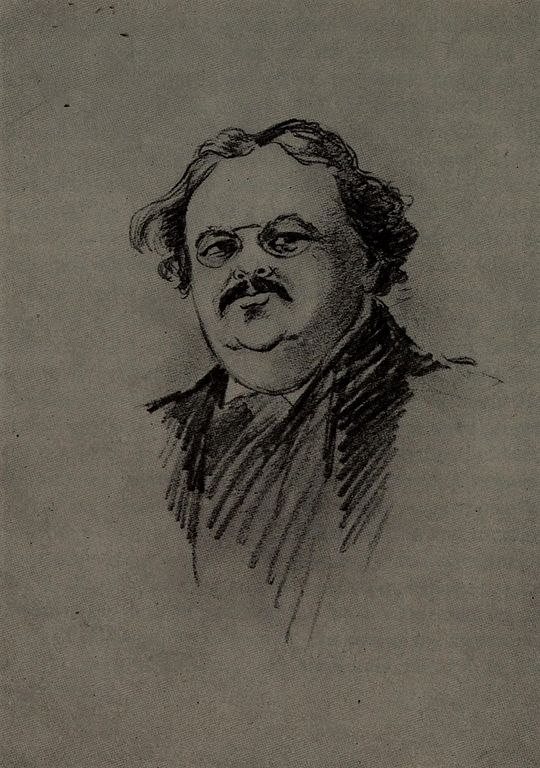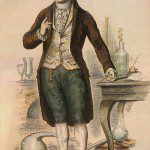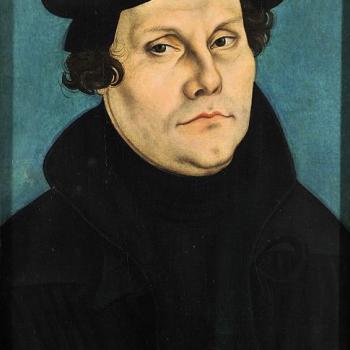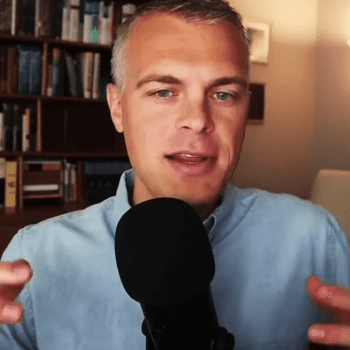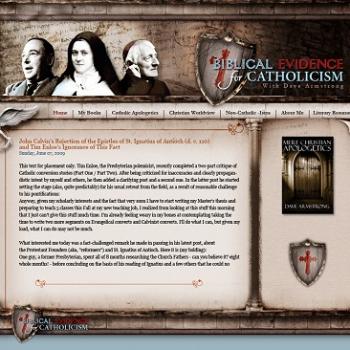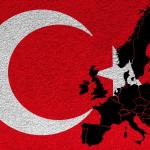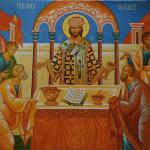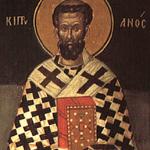TAO (The Anonymous One): But in practice, that top-down management Rome provides allows loose cannons like Armstrong to do what they do, even when what they do is technically in violation of canon law. (7-31-11)
Matthew D. Schultz: The lay-Catholic convert industry, of which the lay-Catholic blogosphere is a definitive part, merely represents a conservative sociological trend. (1-20-11)
. . . the general distance between lay-Catholic blogosphere apologetics and the teachings of the Magisterium, all of which plays into the former being a sociological movement with neither authority nor relevance.(1-21-11)
The lay Catholic blogosphere represents little more than a diminutive, American, theologically conservative movement of (comparatively) wealthy individuals. (1-21-11)
John Bugay: . . . the Roman Catholics are pronouncing on what “Magisterial teaching” actually is, what Roman Catholic doctrine is, and they are doing so in the non-authorized, and even backward way that Matthew is describing. . . . They are NOT reliable expositors of Magisterial teaching. So long as any of these self-appointed apologists attempt to say what Roman Catholic doctrine is, Matthew’s assessment is dead-on. (1-21-11)
Steve Hays: If your church is so clear, why do you and so many other lay Catholics turn to other lay Catholics (e.g. lay Catholic epologists) for moral and theological advice? (8-1-11)
Avery Cardinal Dulles (whom Schultz, above, cited at length in a futile effort to disparage lay apologetics) noted the high importance historically, of lay Catholic apologists:
Who are the finest Christian apologists of the past two thousand years? Why?
A great apologist must be a firm believer, a profound thinker, a sensitive guide to the perplexed, and a clear and eloquent writer. In my book I devote particular attention to St. Augustine, St. Thomas Aquinas, Blaise Pascal, and John Henry Newman, all of whom were conspicuous for these qualities.
In the twentieth century the most successful apologists may have been G. K. Chesterton and C. S. Lewis, who were not professional theologians but highly talented and popular authors who had undergone personal conversions, the one to Catholicism, the other to be more general form of Christian orthodoxy.
(“The History and Purpose of Apologetics,” interview by Carl E. Olson)
Three of the six examples that Cardinal Dulles gave of the “finest” and “most successful” apologists, were non-ordained laymen (Pascal [of Pensées fame], Chesterton, and Lewis), and as he noted, Chesterton and Lewis were not even formally trained theologically. In fact, Chesterton didn’t obtain a college degree of any sort. Frank Sheed was another important lay Catholic apologist in the 20th century.
Blessed John Henry Cardinal Newman noted how lay apologists actually dominated the field in the early Church, and also continued to be prominent in his own 19th century, as they obviously are also in our own time (Kreeft, Howard, Hahn, Muggeridge, Keating, Madrid, Akin, Ray, Shea, Staples, Martignoni et al).
Theologians inculcate the matter, and determine the details of that Revelation; they view it from within; philosophers view it from without, and this external view may be called the Philosophy of Religion, and the office of delineating it externally is most gracefully performed by laymen. In the first age laymen were most commonly the Apologists. Such were Justin, Tatian, Athenagoras, Aristides, Hermias, Minucius Felix, Arnobius, and Lactantius. In like manner in this age some of the most prominent defences of the Church are from laymen: as De Maistre, Chateaubriand, Nicolas, Montalembert, and others.(The Idea of a University, Part II, ch. 4, sec. 4: “General Religious Knowledge,” 1856)


